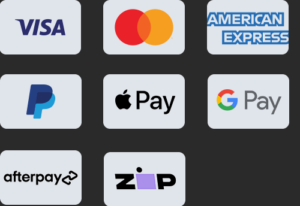Tracking your sleep can be a valuable activity to help you achieve and maintain quality sleep.
Getting a good night’s sleep on a regular basis is essential for optimum health and wellbeing. It’s crucial that adults not only get 7-9 hours of sleep each night; it also needs to be of good quality, cycling through proper sleep stages.
The recommended quantity of quality sleep can:
- Regulate appetite
- Reduce obesity and control weight
- Reduce development risk for Type II diabetes
- Reduce cardiovascular risks
- Boost mood
- Boost creativity
- Improve concentration
- Enhance the immune system
- Decrease accident risk, including motor vehicle accidents
Yet getting enough, good-quality sleep can be a real struggle for so many people. Tracking your sleep can give you valuable insight into how to improve your sleep so that you wake feeling more rested and revived.
Tracking your Sleep
More and more people are using modern technology in the form of activity trackers – to track daily steps, calorie intake, to monitor heart rate, and to even track sleep patterns.
Many sleep trackers are now available in wearable form, strapped onto the wrist; others may be kept by your bed. These don’t directly measure sleep itself, but rather inactivity, and this is a “surrogate” for estimating your sleep.
You do need to understand that digital sleep tracking devices are not a replacement for formal sleep testing – only a medical sleep study can actually measure your brain waves and determine each sleep stage’s length and quality for you, helping to diagnose issues such as sleep apnoea and chronic insomnia.
What sleep trackers are good at is enabling you to recognise your sleep patterns. For example:
- Is your sleep disrupted if you drink caffeine after mid-afternoon?
- Do you sleep better when it is cooler in your room?
- Does your sleep improve on days you exercise?
- Which hours provide you with the best-quality sleep?
- Do you sleep better when you don’t consume any alcohol the day before?
Types of Sleep Trackers
Wearable tracking devices sense motion via an acceleromonitor. But here many of the similarities end.
Medical-grade sleep trackers are much more accurate than more affordable commercial ones, however, these commercial trackers can be quite accurate when measuring night-time sleep. They are not as good at measuring daytime napping – which is important as day naps influence night-time sleep patterns.
Some sleep tracker examples include:
- Commercial wearable activity trackers for the wrist or finger
- Monitors which sit under your mattress or under your sheets
- Bedside Monitors
- Sleep Apps – downloaded to your smartphone, tablet, laptop or desktop
Smartwatches, smartphones, and fitness devices may overestimate the efficiency of your sleep – but they are still valuable for getting a clearer picture of how you sleep.
Checking REM Sleep
REM (rapid eye movement) sleep is a critical part of the sleep cycle – this is your “dreaming” sleep during which the brain rests and resets, as opposed to slow-wave deep sleep where the body physiologically rests.
No wearable device is able to track light sleep versus deep sleep adequately – this can only be accurately measured in a formal sleep study setting in a sleep lab or clinic.
So should you track your sleep? The answer to this is “Yes” if:
- You wake frequently throughout the night
- You wish to optimise your performance
- You suffer insomnia
- You experience extremely vivid dreams, night terrors, or nightmares
- You are sleepy during the day
- You snore or suspect you may suffer from sleep apnoea
Note that if you are a particularly anxious person, or you are very anxious about your sleep, actively tracking it may be counter-productive. In this instance, speak with your doctor or a sleep specialist.
Visit SnoreMD
It’s normal to wake during the night. The issue is whether you easily fall asleep again, and how you function the following day. By tracking your biometric data, you become more engaged with your sleep and your overall health and wellbeing.
SnoreMD offers a vast array of information relating to sleep as well as revolutionary solutions to help you and those you love to stop snoring for a better night’s sleep.
Explore our website at SnoreMD to discover more, or give us a call today on (07) 5370 9323.


